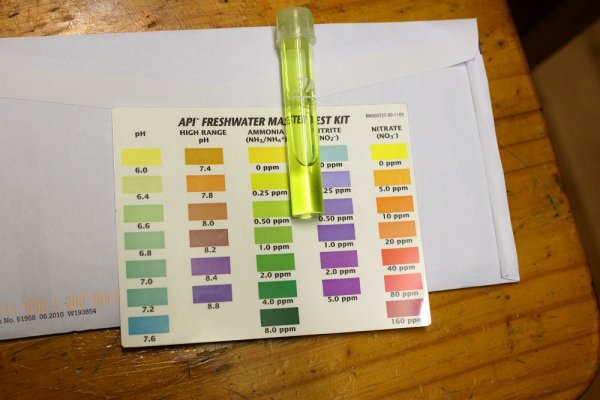Britty
Aquarium Advice Activist
I have read on various sites that some people use rainwater as an alternative to RO water to part condition their water changes from the tap. To date I've only ever used tap water.
We have been receiving some rain over recent weeks so I managed to collect some to test. Had a decent dump of rain overnight.
Our rain is indeed acidic, so much so it tests as 6.0 (lowest it can read) on the API PH test. I would reason the actual PH is less than this, but don't have the means to determine how much lower. API test is all I have.
What surprised me is that I also performed an ammonia test and it's definitely not zero. It looks to be closer to 0.5ppm. I've attached a pic. (Always hard for me to interpret the colours on the test kit)
Our tap water here tests what looks to be just under or on 0.25ppm. So the rainwater has a higher concentration of ammonium at much lower PH
Has anyone else tested their local rainwater and can share some results? Do you use it in your tank?
We have been receiving some rain over recent weeks so I managed to collect some to test. Had a decent dump of rain overnight.
Our rain is indeed acidic, so much so it tests as 6.0 (lowest it can read) on the API PH test. I would reason the actual PH is less than this, but don't have the means to determine how much lower. API test is all I have.
What surprised me is that I also performed an ammonia test and it's definitely not zero. It looks to be closer to 0.5ppm. I've attached a pic. (Always hard for me to interpret the colours on the test kit)
Our tap water here tests what looks to be just under or on 0.25ppm. So the rainwater has a higher concentration of ammonium at much lower PH
Has anyone else tested their local rainwater and can share some results? Do you use it in your tank?


